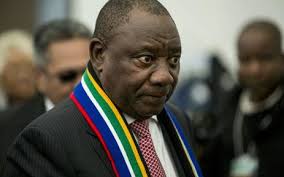Apparently determined to substantially reduce its budget deficit and improve the performance of the economy in the 2019 fiscal year, the South African Government on Wednesday proposed sundry measures to boost revenue collection.
South Africa’s Finance Minister, Tito Mboweni, gave the hints on government’s tax reform plans during a budget press conference, noting that weak economic growth and tax administration concerns remain key focus areas in the fiscal year.
Specifically, the revised tax revenue estimate for 2018/19 is R15.4 billion lower than anticipated by the 2018 Medium Term Budget Policy Statement (MTBPS) estimate.
This implies that the the projected revenue shortfall of R27.4 billion is now R42.8 billion compared with the 2018 Budget estimate.
Mboweni had in his maiden budget address on Wednesday explained that in order to bridge the huge revenue shortfall, tax changes targeted at raising R15 billion in additional tax revenue in 2019/20 had been introduced.
He listed the changes to include, increasing the tax-free threshold for personal income taxes from R78 150 to R79 000 while no changes will be made to personal income tax brackets; and
increasing the fuel levy by 29c/litre, consisting of a 15c/litre increase in the general fuel levy, a 5c/litre increase in the Road Accident Fund (RAF) levy and the introduction of a carbon tax on fuel of 9c/litre.
Other measures are, increasing excise duties on alcohol and tobacco products by between 7.4 per cent and 9 per cent. The targeted excise tax burden for wine, beer and spirits is 11 per cent, 23 per cent and 36 per cent respectively and increase in health promotion levy from 1 April from 2.1c to 2.21c per gram in excess of 4 grams of sugar per 100ml
The government also plans to limit the RAF levy diesel refund for primary production industries to ensure that diesel users in these sectors equitably contribute towards their RAF indemnity and also implement the carbon tax effective from 1 June 2019
In addition, the government also proposes to align the tax treatment on ad valorem excise duty on motor vehicles Because of the way ad valorem excise duty is calculated, vehicles produced locally are taxed at a higher rate than imported vehicles; publish draft legislation for public comment during 2019 on a gambling tax and review the urban development zone tax incentive.
The government is also reviewing its oil and gas tax regimes in 2019 as well as taxing electronic cigarettes and tobacco heating products as well reviewing fuel levy goods for tax purposes and consider tax on “single-use” plastics including straws, caps, beverage cups and lids, and containers to curb their use and encourage recycling.




